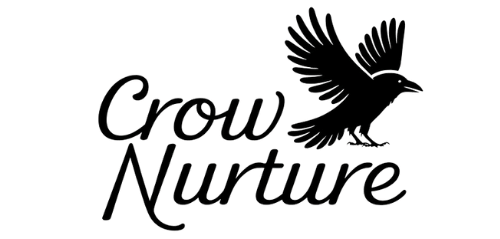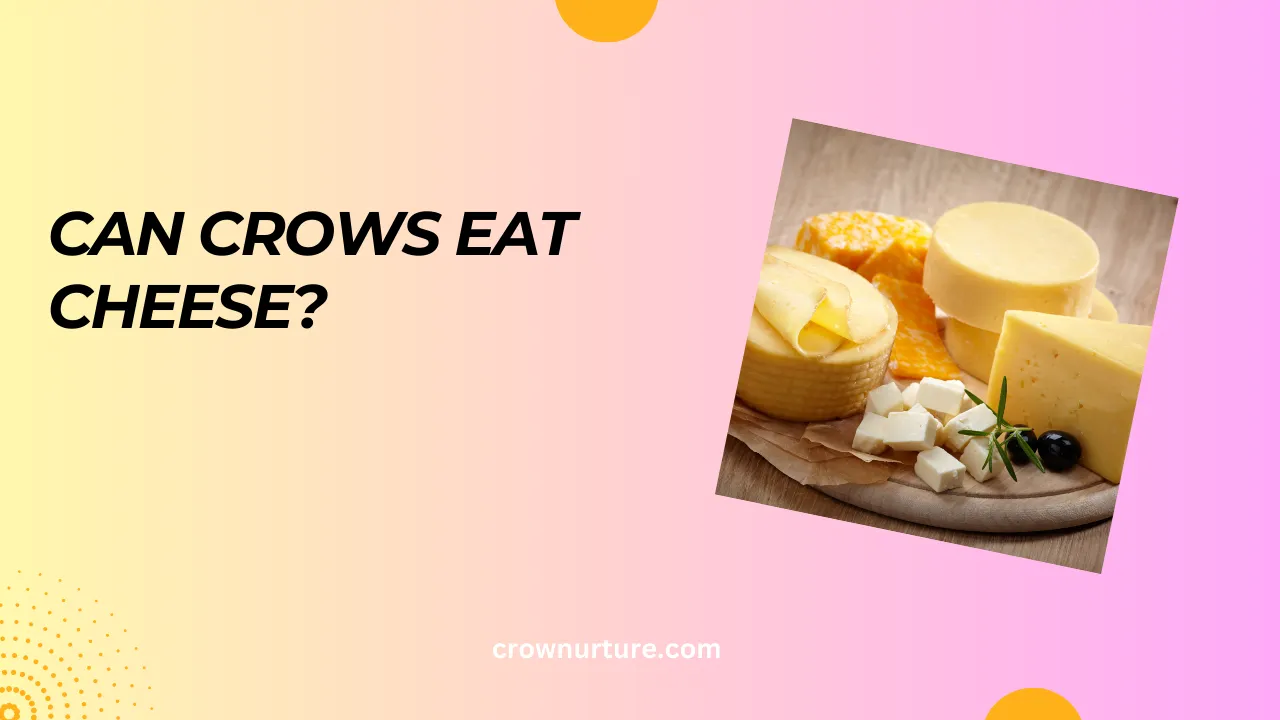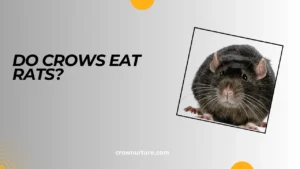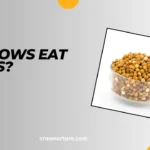Crows are fascinating creatures known for their intelligence, adaptability, and curious nature. From using tools to solving puzzles, these birds never fail to amaze us.
But when it comes to their eating habits, people often wonder: “Can crows eat cheese?” This seemingly simple question opens the door to deeper discussions about their dietary needs, health, and ethical feeding practices.
While crows are omnivorous opportunists that consume almost anything, cheese is not a natural part of their diet. Feeding crows human food like cheese may seem harmless or even entertaining, but it can have unintended consequences for their health and behavior.
Understanding their natural diet and the risks associated with certain foods is key to fostering a healthy coexistence with these remarkable birds.
In this article, we’ll explore the natural eating habits of crows, their ability to digest cheese, the potential risks involved, and ethical alternatives for feeding them responsibly. If you’re curious about whether cheese should ever be on the menu for crows, keep reading to uncover the truth.
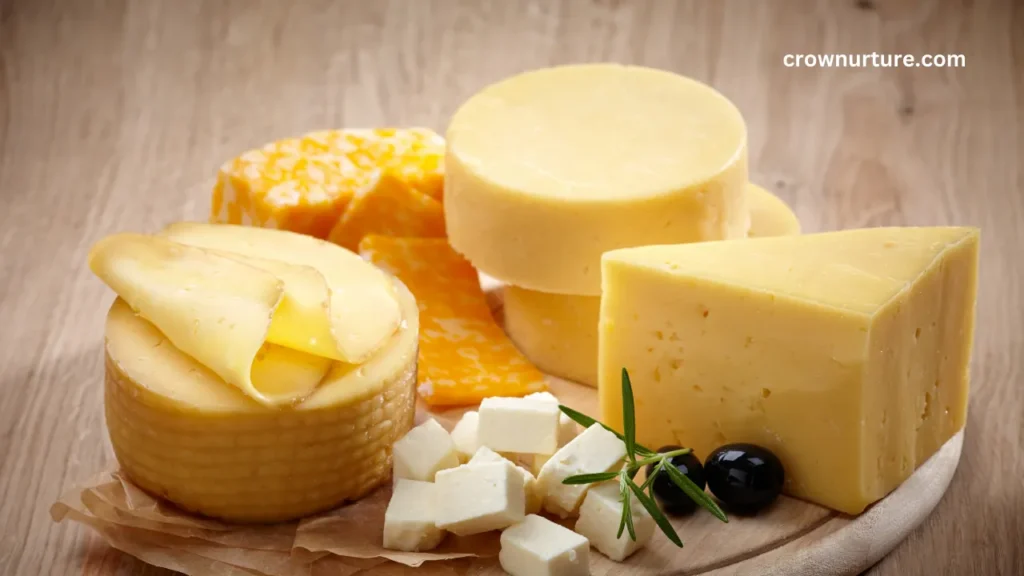
Contents
1. Crows’ Natural Diet
- Omnivorous Nature:
Crows are highly adaptable omnivores, eating a wide range of foods such as insects, fruits, seeds, nuts, carrion, and even small animals. Their varied diet plays a crucial role in maintaining balanced ecosystems. - Opportunistic Feeders:
Known for their resourcefulness, crows readily consume leftover human food, including bread, fast food, and snacks. However, this opportunistic behavior often exposes them to unhealthy or unnatural foods.
2. Can Crows Digest Cheese?
- Lactose Intolerance:
Like most birds, crows lack the enzymes required to digest lactose, a sugar found in milk products, making cheese potentially harmful to their digestive system. - Potential Digestive Issues:
Consuming cheese can lead to vomiting, diarrhea, and dehydration in crows, especially if eaten in large amounts or frequently. - Salt Content:
Many cheeses are high in salt, which can disrupt a crow’s natural electrolyte balance, potentially leading to serious health issues.
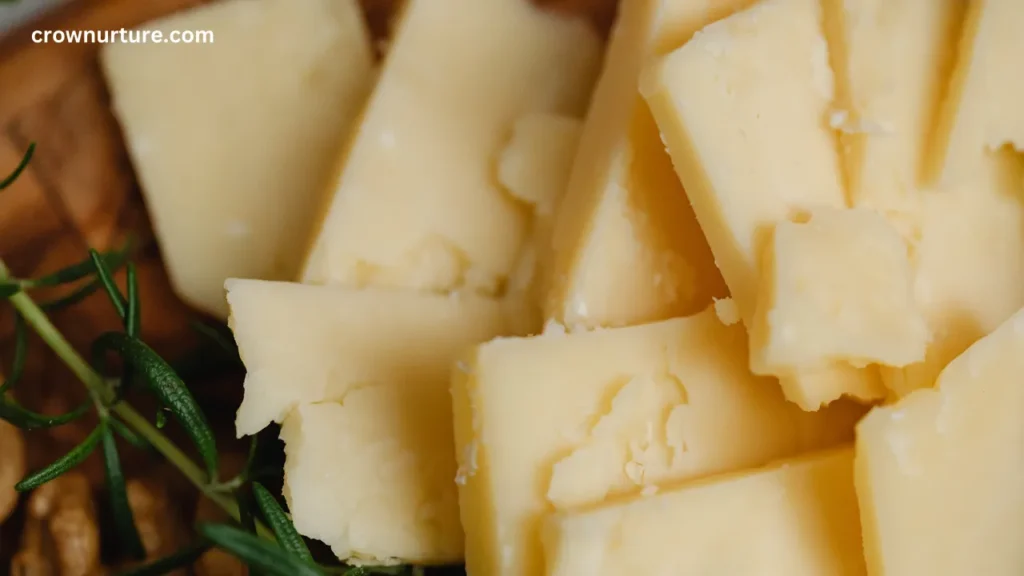
3. Ethical Considerations of Feeding Crows Cheese
- Unnatural Diet:
Feeding crows cheese introduces a foreign element into their diet, disrupting their natural feeding behaviors and possibly leading to long-term health problems. - Dependency and Aggression:
Regularly feeding crows human food can create dependency, altering their behavior and increasing aggressive interactions between crows and humans. - Disease Transmission:
Sharing food sources between humans and wildlife increases the risk of disease transmission, endangering both parties.
4. Alternative Food Sources for Crows
- Natural Foods:
Offer crows healthier options like cracked corn, unsalted peanuts (in the shell), and sunflower seeds to align with their natural diet. - Fruits and Vegetables:
Sliced apples, grapes, and raw vegetables are excellent additions to a crow-friendly feeding routine. - Water Sources:
Providing a clean water source is essential, especially during hot weather when dehydration risks increase.
5. Long-Term Impacts on Crows
- Behavioral Changes:
Feeding crows inappropriate foods like cheese can lead to altered social dynamics within crow communities, such as increased competition and aggression. - Health Risks:
Regular consumption of unsuitable foods can result in malnutrition, reduced immunity, and shorter lifespans for crows. - Ecosystem Balance:
Human interference with crow diets can disrupt their role as scavengers and seed dispersers, impacting local ecosystems.
Conclusion
Crows are highly intelligent and opportunistic birds, but their natural diet is best suited to sustain their health and ecological roles. Cheese, while tempting to offer, is not a safe or recommended food for them, given their inability to digest lactose and the risks posed by high salt content.
By sticking to natural and healthier food options, we can help crows thrive without compromising their well-being or natural behaviors. Feeding wildlife responsibly not only benefits the animals but also preserves the delicate balance of ecosystems in which they play an integral role.
Next time you see a crow, appreciate its resourcefulness and intelligence but think twice before offering it a snack from your plate. Small changes in our actions can have a significant positive impact on these remarkable birds and the environments they inhabit.
FAQs
1. Can crows eat cheese occasionally?
While they can eat small amounts of cheese, it is not advisable due to the potential health risks, such as digestive issues and high salt intake.
2. Why is cheese bad for crows?
Cheese contains lactose, which crows cannot digest, and often has high salt levels harmful to birds.
3. What foods are safe for crows?
Crows enjoy cracked corn, unsalted peanuts, sunflower seeds, fruits, and vegetables. These align with their natural diet.
4. Can feeding crows human food harm them?
Yes, feeding crows inappropriate human foods can lead to health problems, behavioral changes, and dependency on humans.
5. Are crows lactose intolerant?
Yes, like most birds, crows cannot process lactose as they lack the necessary digestive enzymes.
6. What happens if crows eat salty foods?
Foods high in salt can disrupt a crow’s electrolyte balance, causing dehydration and other health issues.
